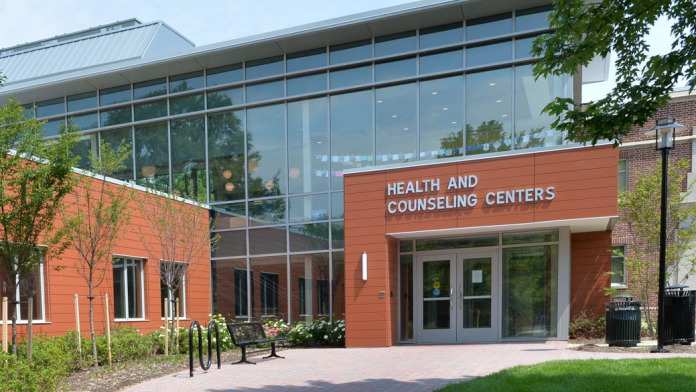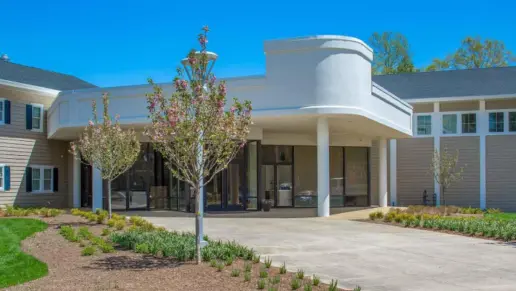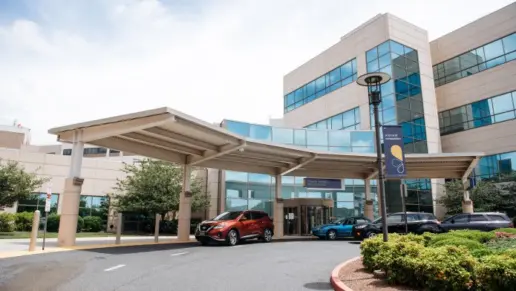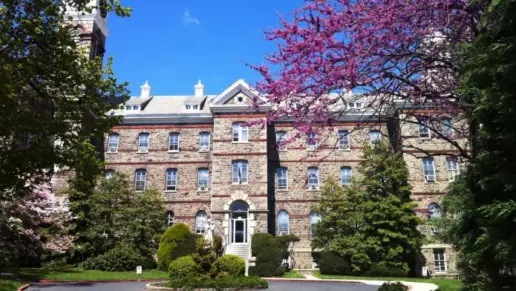If you're going through a hard time don't hesitate to reach out for someone to help you. The counselors here are truly qualified to help you with anything.
About Towson University Counseling Center
Towson University Counseling Center is located in Towson, Maryland. This is a counseling center that operates within the greater Townsend University campus. The services here are designed to help students who need support for mental and emotional health struggles they might be facing. There are also specialized services if you have a substance use struggle.
Leaving home and making the transition to young adulthood on a college campus can be difficult for many students and families. Many students might find themselves experiencing struggles with their mental health or even turning to alcohol or drugs to help alleviate some of the mental stressors they might be facing.
If you have concerns about your mental health and well being or have a bad relationship with drugs or alcohol then you’ll find compassionate, judgment free care here. The services at the Counseling Center are solution focused, all while helping you get connected to resources on campus and in the community.
You don’t have to feel alone or judged when you start the path to recovery. At Towson University, there’s a unique program known as the Collegiate Recovery Program. This program was designed to help Townsend students find supportive care in their school’s community.
You’ll work with other students and mentors who have or are experiencing similar struggles. Through this network, you’ll be empowered and inspired to take the necessary steps to lead a life of health and wellness.
Families don’t have to feel left out in their child’s recovery either. Through group and family counseling sessions, you’ll be able to repair relationships with loved ones, helping you widen that network of support to lead a healthy life.
Rehab Score
Gallery

Location
Other Forms of Payment
Self-pay involves paying for treatment out of your own pocket. You can use savings or credit, get a personal loan, or receive help from family and friends to fund your treatment. If you don't have insurance or your insurance plan doesn't cover a specific program, self-pay can help ensure you still get the care you need.
Sliding scale payments are based on a client's income and family size. The goal is to make treatment affordable to everyone. By taking these factors into account, addiction recovery care providers help ensure that your treatment does not become a financial burden to you or your family, eliminating one barrier to care.
Medicaid is a state based program that helps lower-income individuals and families pay for healthcare. Medicaid covers addiction treatment so those enrolled can use their coverage to pay for rehab. When a program accepts Medicaid the client often pays very little or nothing out of their own pocket.
Medicare is a federal program that provides health insurance for those 65 and older. It also serves people under 65 with chronic and disabling health challenges. To use Medicare for addiction treatment you need to find a program that accepts Medicare and is in network with your plan. Out of pocket costs and preauthorization requirements vary, so always check with your provider.
Addiction Treatments
Levels of Care
Treatments
The goal of treatment for alcoholism is abstinence. Those with poor social support, poor motivation, or psychiatric disorders tend to relapse within a few years of treatment. For these people, success is measured by longer periods of abstinence, reduced use of alcohol, better health, and improved social functioning. Recovery and Maintenance are usually based on 12 step programs and AA meetings.
Once a person has become addicted to a substance, drug rehab in Maryland is often necessary to overcome that addiction. These programs provide the tools individuals need to manage the physical, mental, and emotional issues involved and begin a successful recovery journey.
A combined mental health and substance abuse rehab has the staff and resources available to handle individuals with both mental health and substance abuse issues. It can be challenging to determine where a specific symptom stems from (a mental health issue or an issue related to substance abuse), so mental health and substance abuse professionals are helpful in detangling symptoms and keeping treatment on track.
Opioid rehabs specialize in supporting those recovering from opioid addiction. They treat those suffering from addiction to illegal opioids like heroin, as well as prescription drugs like oxycodone. These centers typically combine both physical as well as mental and emotional support to help stop addiction. Physical support often includes medical detox and subsequent medical support (including medication), and mental support includes in-depth therapy to address the underlying causes of addiction.
Programs


Clinical Services
Group therapy is any therapeutic work that happens in a group (not one-on-one). There are a number of different group therapy modalities, including support groups, experiential therapy, psycho-education, and more. Group therapy involves treatment as well as processing interaction between group members.
In individual therapy, a patient meets one-on-one with a trained psychologist or counselor. Therapy is a pivotal part of effective substance abuse treatment, as it often covers root causes of addiction, including challenges faced by the patient in their social, family, and work/school life.
Amenities
-
Private Setting
Contact Information
8000 York Road
Towson, MD 21252


